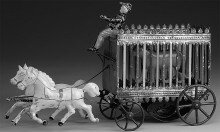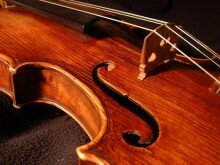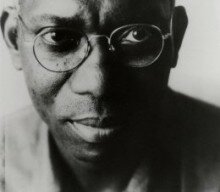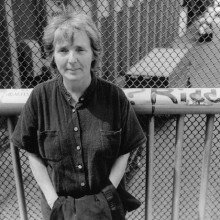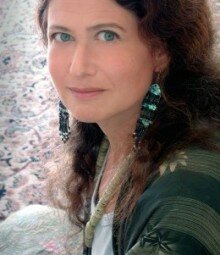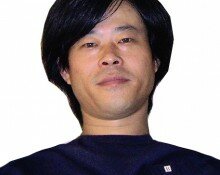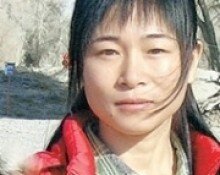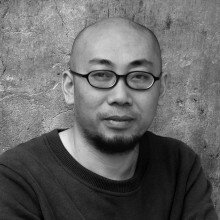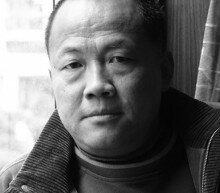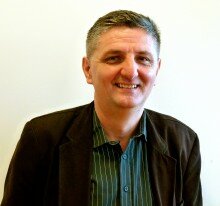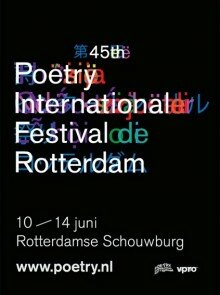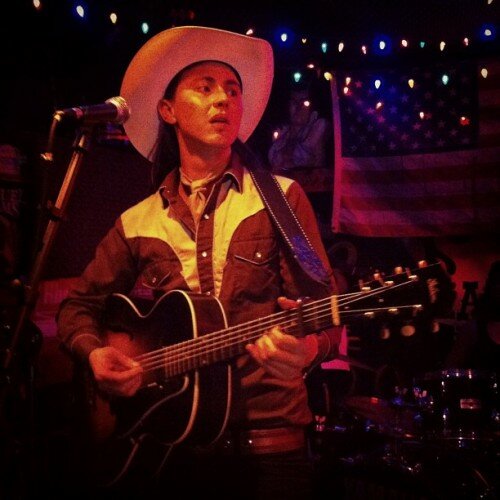Some questions about poetry
In this interview, Gian Mario Villalta answers questions about, among other things, the Italian language, tradition, translation and memory.
Q: Those who use the Italian language realize more and more each day how strong its exposure to other linguistic instruments is, English first of all naturally, but also to all the languages of immigration and then to that true second language that essentially derives from television. How are these transformations received in the process of writing?
A: The process of writing should be in tune with a profound rhythm of the language, which articulates sounds and images with the movement of the breath gathered in the ‘telling’. For the poet, there is a place of expression in which his ‘telling’ enters into resonance with the language, which is always the language of others. Here the poet, as a poet, is someone. Otherwise he is just a speaker.
The transformations of the language are necessarily received by the poet, but this reception is not necessarily measurable in terms of lexical frequency or syntactic tics. It is a reception that takes into account (and perhaps must take into account) rhythm, intonation, articulation, something that has to do with the sound of the incessant dialogue between speakers, rather than with individual speech.
The late 20th century, in the name of the measurability of the text’s effects, has often privileged the inquiry into this aspect, that is, the mimesis of individual speech, while neglecting the tension that is created between the "body’s eye" and the "mind’s eye," the recognizability of the said and exposure to the sayable.
The theme of poetry’s ‘sayability’ actually meets the content of this question head on: he who has written in dialect in recent years, for example, has had to face this theme, perhaps to find himself in front of a ‘sayability’ that loses the possibility of a true listening. Those who have not shown signs of realizing this have been on another planet.
Dialect writing today demonstrates the paradox of the linguistic transformations that are underway from a point of view situated, so to speak, on the edge of an abyss; but for this reason, when dialect writing becomes aware of this abyss, its call (which is almost always a cry for help) is truer.
Q: One of the most frequent impressions regarding recent poetry is that there is a formidable weight of recent or very recent traditions, that is of poets who belong to the generation immediately preceding that of the writer, accompanied by the consideration of old or very old traditions. For example, one can find Petrarchism and its negation, whereas the intermediate traditions, if you can call them that, from Pascoli or Sereni, to name just two, are barely present. In addition, this attitude seems to be much more prevalent than the postmodern fashion and signals a different relationship to historicity. If that’s the way it is, does contemporary poetry come out strengthened or weakened?
A: I see this question as logically tied to the previous one; I’ll try therefore to answer in continuity with what I began to say: there is an urgency regarding problems tied to ‘sayability’, there is a recent and profound transformation of the Italian language and its sound, which inhibits the perception of references on a range of very close presences.
The above impression, then, is a correct one
But in terms of influence and tradition, I feel that the impression sometimes requires further inquiry.
If by "recent poetry" we can still refer to poets between the ages of forty and fifty, which is my generation, I believe that it is not so, beginning with Zanzotto for me, with Sereni for Dal Bianco, with Pascoli for Damiani, (the ghost of) Carducci for Benedetti, etc. We must, in addition, remember the bursting onto the scene of European and American poetry as parallel and supplementary forms of a well-integrated tradition, in many aspects, though with all due differences. As far as I’m concerned, Celan is near Zanzotto in the central point of my personal comprehension and my personal passion for poetry (but I would look toward the Russian female poets and Saint-John Perse for Anedda). In this regard, certain national and chronological divisions of tradition have been abandoned, but he who has faced his journey without shortcuts has understood all the same that the relationship with historicity is not diminished.
The relationship with the poetic ‘paternity’ that historicity produces as canon (anthology, studies, official literary collections) is transformed and therefore the first result is a weakness, both in the long-term genetic recognizability within the canon (as is observed in the formulation of the question), as well as in the difficulty in "making the canon" on the part of new works. Paradoxically, poems today appear less ‘new’ compared to much older poems (with respect to their time) of thirty years ago, because the canon of reference is less rigid and the gap, which is ferociously pursued in the 20th century canon, is less evident.
There is instead a new force, still barely evident, in the awareness that any relationship with the masters comes to situate itself in a deeper level of dialogicity with the work.
It is an abandonment of the reactivity of the last century, which produced so much evident ‘novelty’ but in the race ahead lost so much of the work’s substance as well as its ability to build a world.
And perhaps it is also time for a difficult humility, that, for example, which allows a poet to respond to these questions knowing that he has absolutely no authority to do so, given that the loss of a community mandate is a fact for the poet today. This takes place without the irony of he who presumes defeat, but with the firm voice of a person who has no need to amaze anyone, because he knows that he can talk to someone.
It is superfluous to specify that the two motivations mentioned above (the changes in the order of the language and in the relationship with tradition) are related to the tremendous acceleration of the processes of social reproduction, which have determined in the course of the last decades such decisive changes on the existential and anthropological horizon.
Q: Just like in translation, even in poetry we begin with the idea that there are no synonyms and that there are no equivalent rhythmical cells. The avant-garde has taught us that, in effect, there is no way to deny the status of verse to any written unit that want to define itself as such. But what are for you the characteristics by which a verse is recognizable as a verse?
A: ‘A’ verse is a hypothesis, like ‘a’ musical beat, an expectation. The first verse of a poem, we should say, always begins with the second verse. It is this differential structure that determines the rhythm and constitutes the first cell of sound/sense. Unfortunately, there are few alternatives: as far as conventions of writing are concerned, starting a new line de facto establishes a verse, with respect to a rhythmic and melodic articulation that should however be discernable even in writing that is continuous, within the obligation of intonation that is implied.
Q: Leopardi almost always wrote in prose "the content" of what he later would transform into poetry; for a long time, after Mallarmé, the catch phrase "the initiative to words" has characterized modernity. Thought and language, objects and sonorous substance, what comes first in writing?
A: Writing takes place for me in an emotional tonality mixed with thought (even ‘thoughts’, of course, considering the polysemy of the expression).
I could say, however, that this is successful (when, in my opinion, I succeed in doing what I succeed in) when I take myself completely toward a place in which things, sounds, emotion, and thought meet. This sensation of ‘going’, of bringing myself toward an ‘outside’ that approaches others, is fundamental. Things are then really things, that which allows us to reveal ourselves to the world, to lose the illusion of our selfish existence, to find a zone where selfishness is inexistent, which alludes to some type of coexistence. Giving song. What an illusion! But you cannot desire less. Even just a closed mouth song. Singing together. But it must be emphasized that the poet would like to sing the song of the language, not only the song of the voice.
Q: Do you feel the need to learn your poets by heart, to recite verses out loud, to manage the physical, material substance of poetry? From which poets, on what strata of reading was your need to write built, was your idea of poetry formed?
A: I find in my memory sequences of verses that I never tried to learn by heart. Even in foreign languages. It is a gift that I appreciate immensely. A poem that is not ‘said’ in its physical substance of word and vocal gesture is not yet poetry: reading the poem is for me a way to repeat this ‘saying’, sometimes tens, hundreds of times, until I feel I have found its/my adequate form. The mind’s ear and the body’s ear must be in tune.
The decisive experience, as far as the second part of the question is concerned, is tied to the names Zanzotto and Celan, not so much for the need to write, which I’ve always felt, nor as primary experiences, but for the comparison with a measure that did not allow for a middle course. One could no longer have an ‘idea’ of poetry or something of the kind, while passing through these poets; the only thing to do was to get on the road without turning back, while recognizing the poverty of one’s own means and baggage, but convinced that one could stay there, exposed to the cold, to the tempests of light, only that and nothing less was worth it.
Q: The general form of communication that determines our mode of staying in the world today brings into itself more and more frequently elements of abstraction, of conceptualisation. The main reflection of such a state of things in art in general is a progressive attenuation of its tie with the tangible, with the data of the senses, with the material substance of experience. Is such a context compatible, for example, with the existence of that part of poetic experience that we call Lyric, with its formal peculiarities and its need for subjective autonomy, which today nothing seems to authorize?
A: Zanzotto and Celan, to cite these two names again, have been capable of bringing the most abstract, technical and scientific terms back to the concreteness of the ‘pronounced’ and emotionally felt word. On the other hand, they have managed to allow the words most rooted to the earth to navigate in the rarefied skies of abstraction.
Without a tie to senses and emotions, poetry loses its meaning. But it is also true that our emotions and our sensitivity have branched out, they have become subtle, and they sometimes assume paradoxical and imaginary forms.
This having been said, it seems to me that there is a need among poets that I have called of my generation, to return to the body, to emotions, to things, to the truth of life, with the awareness, however, of all that is said as a premise to your question. It is a matter, therefore, of new experiences with words, which at times seem perhaps too individual, but that are absolutely necessary in this horizon.
Abridged text taken from Studi Duemilleschi, annual review of the history of contemporary Italian literature, edited by Cesare De Michelis, n. 2, 2002, pp. 109-113.
Translated by Berenice Cocciolillo



